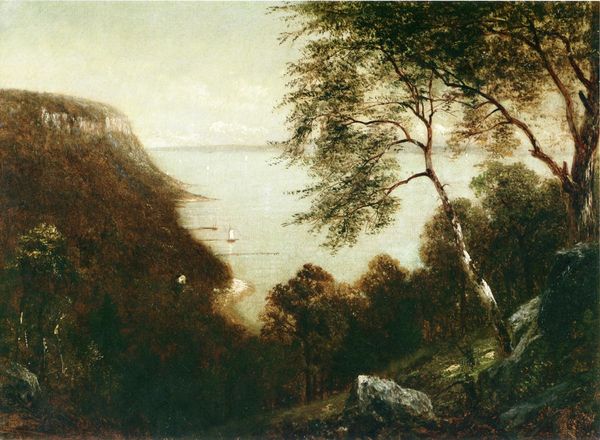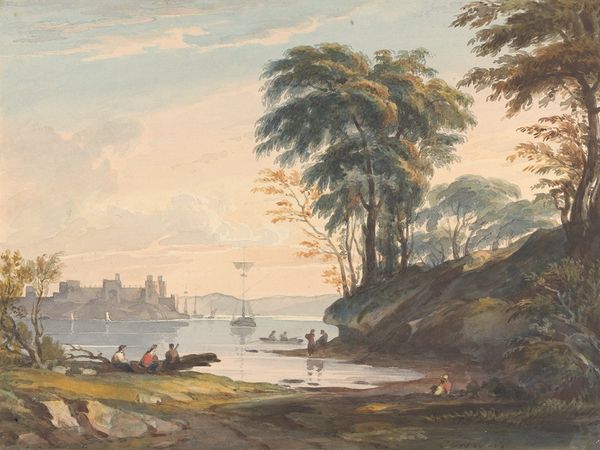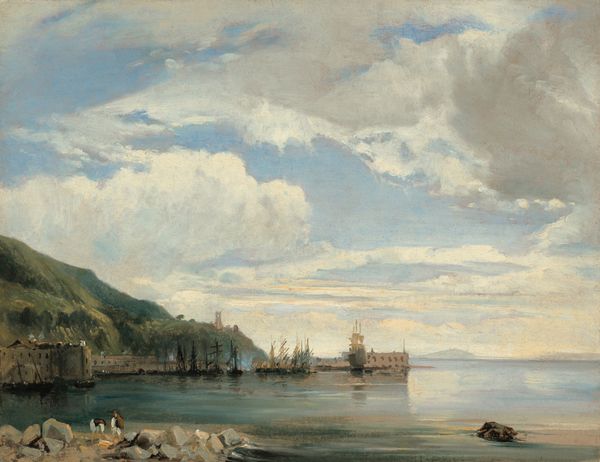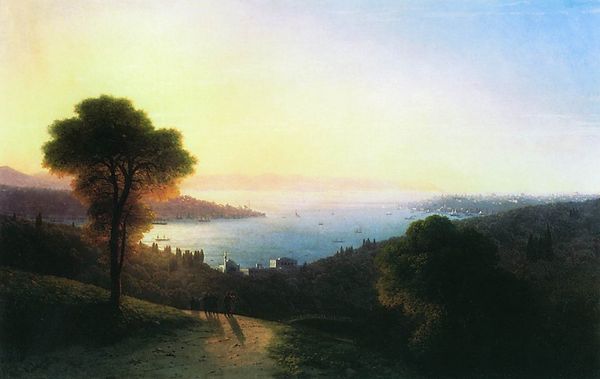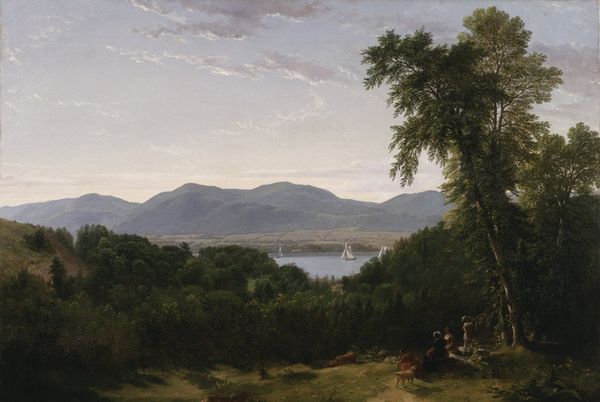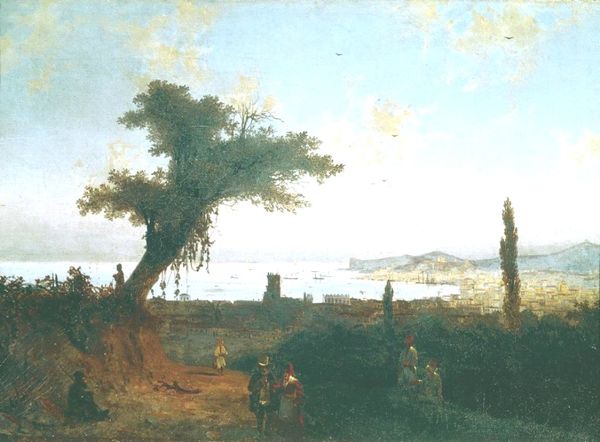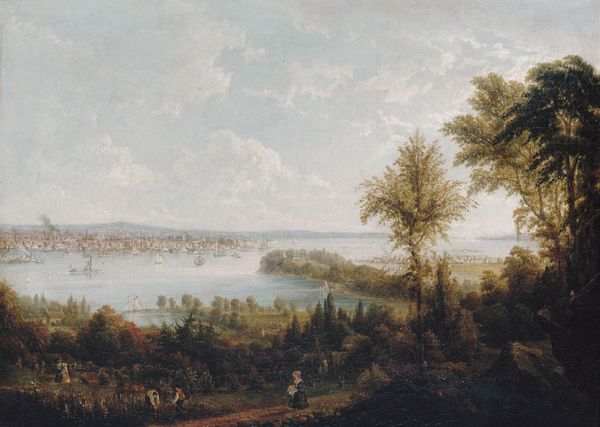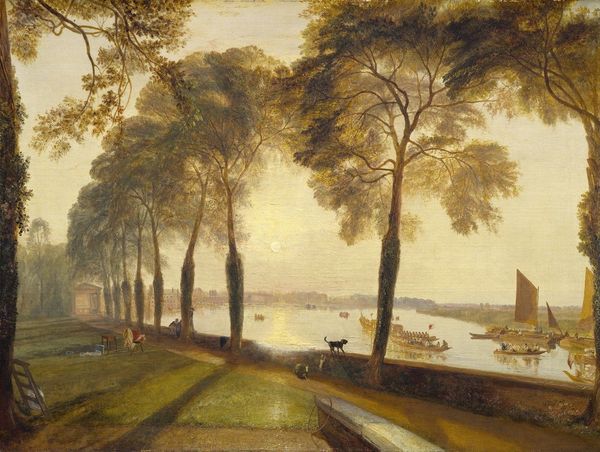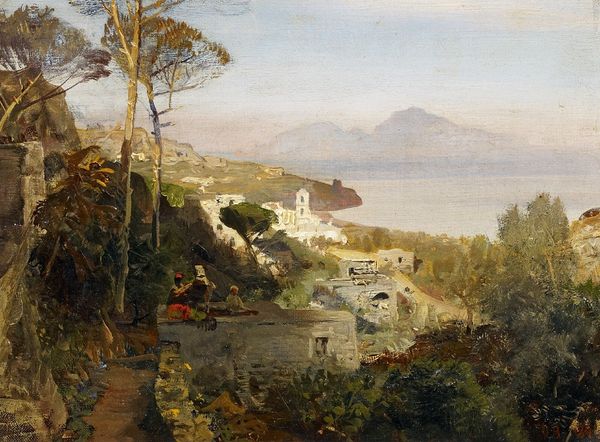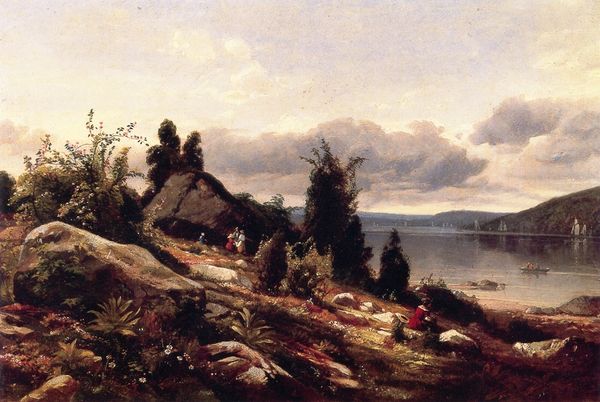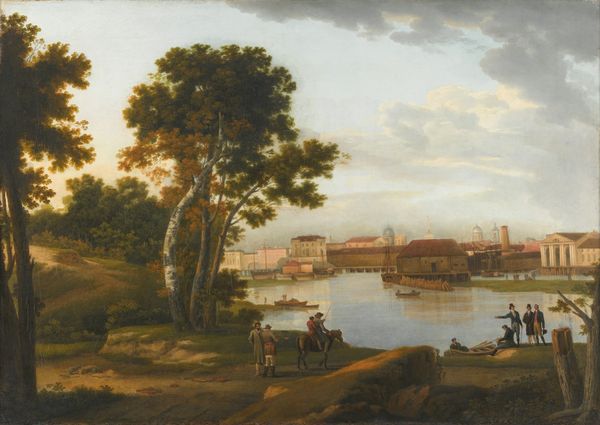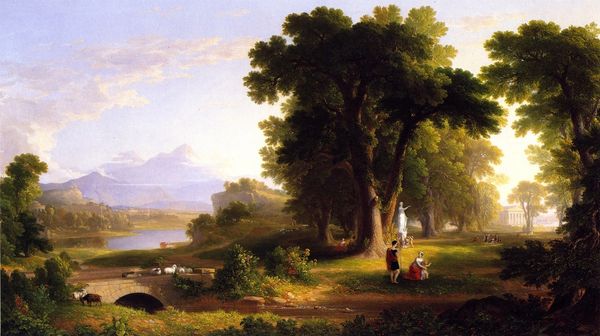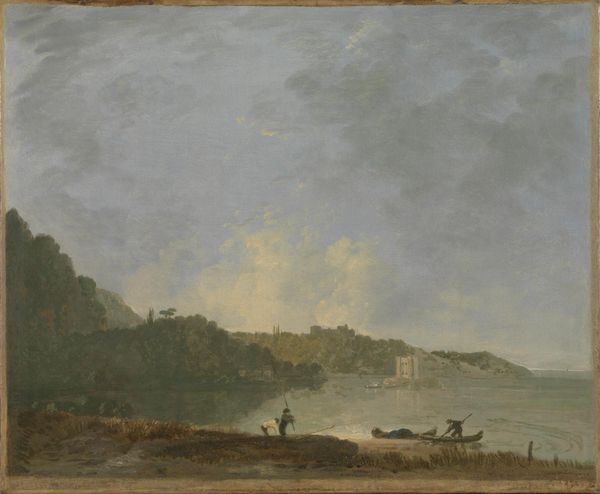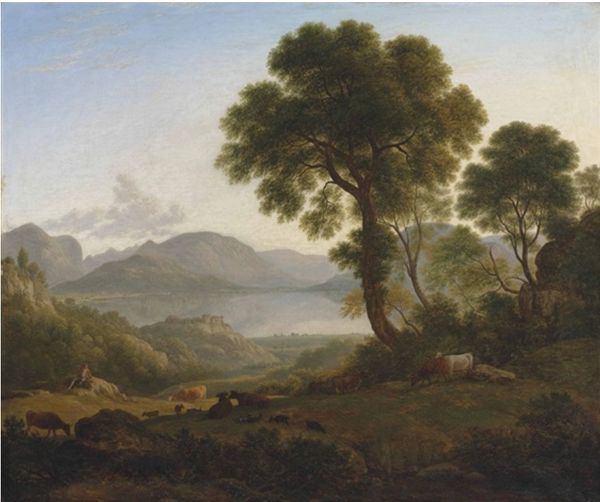
painting, plein-air, oil-paint
#
painting
#
plein-air
#
oil-paint
#
landscape
#
impressionist landscape
#
figuration
#
possibly oil pastel
#
oil painting
#
romanticism
#
seascape
#
natural-landscape
#
nature heavy
#
nature environment
#
watercolor
Copyright: Public domain
Maxim Vorobiev captured this Italian seaside landscape with oil on canvas sometime in the first half of the 19th century. At first glance, one sees a tranquil scene with a pensive figure, but look closer: the trees, framing the vista like theatrical curtains, draw our eyes to the distance. Trees themselves have long served as symbols of life, growth, and connection to the earth. Notice how Vorobiev uses them to frame the lone figure, perched at the edge of the scene. This figure embodies 'melancholia', a figure that has permeated art history since ancient Greece, often depicted in a state of contemplation or sorrow. Consider Albrecht Dürer's 'Melancholia I', where the winged figure sits amidst discarded tools, symbolizing intellectual stagnation. In Vorobiev's work, however, the figure is placed in nature. This merging perhaps signifies a bridge between the internal world of thought and the external world of nature. The sea in the background is a powerful force engaging our subconscious on a deep level, offering both solace and an awareness of nature's indifference. This echoes a continuous thread: humankind's search for meaning amidst the vastness of existence. We see it resurface time and again, evolving, adapting, and taking on new meanings in each new era.
Comments
No comments
Be the first to comment and join the conversation on the ultimate creative platform.
